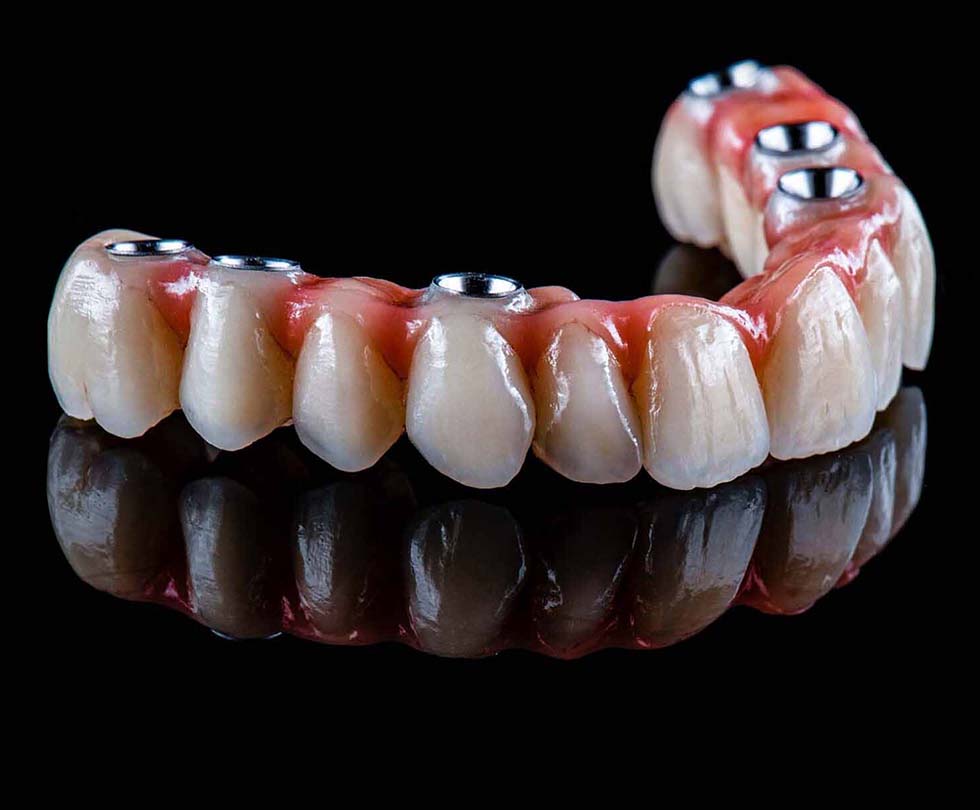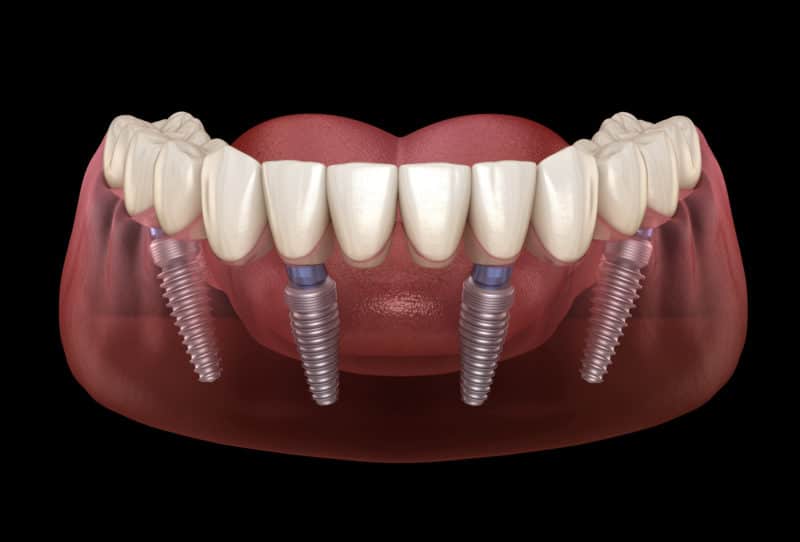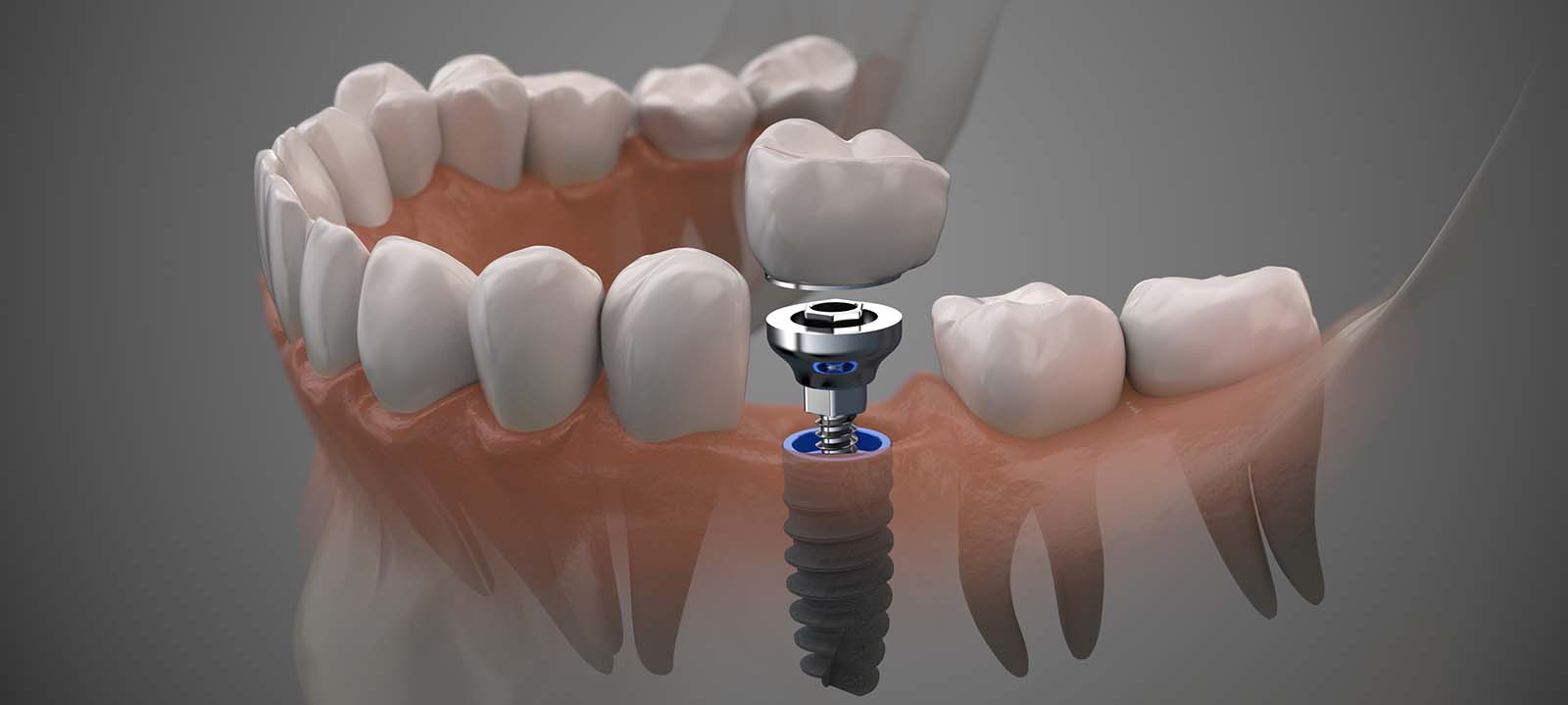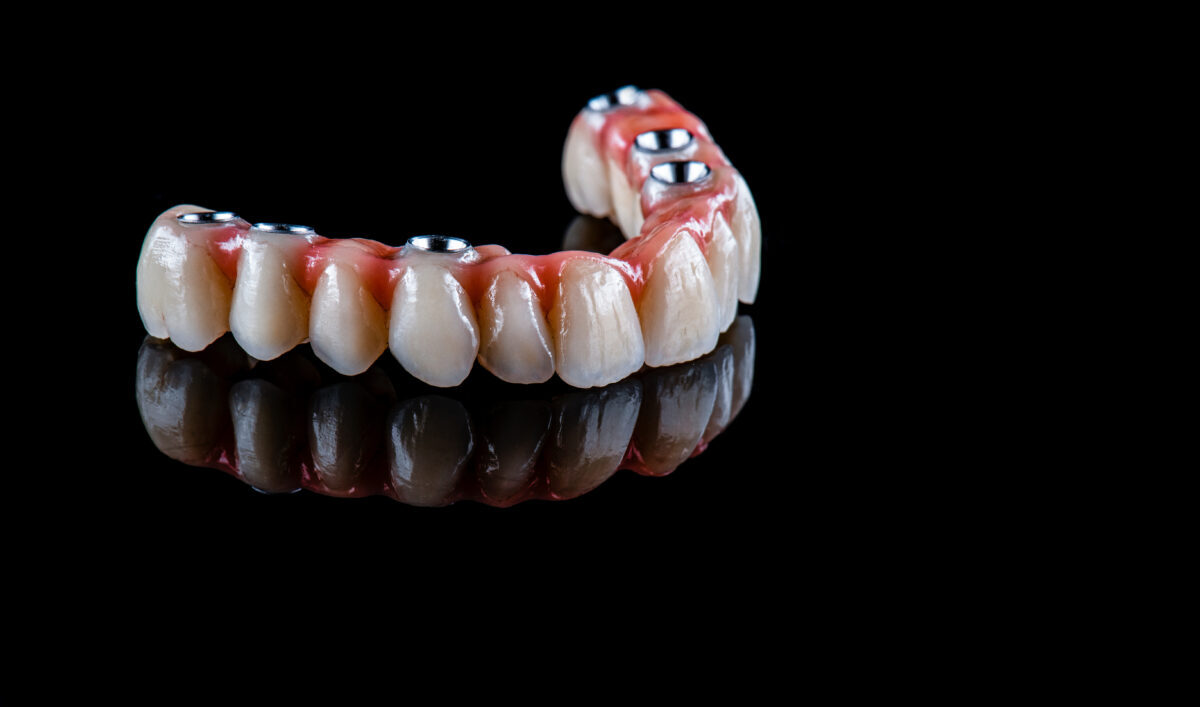Dentistry is vital to your health. Getting regular checkups is important to staying on top of your teeth. Modern dentistry offers solutions to suit your needs, and that includes modern dental restoration.
We use the latest in dental technology to restore your teet. We fix chipped teeth, create fillings, and customize dental implants. Our implant dentists will begin with a comprehensive oral exam that includes dental x-rays. Throughout the exam, we’ll check your gums, your neck, and your jawline for anything that needs attention,
We can catch problems early during your exam. This includes cavities and tooth trauma. After the exam, we will help you come up with a customized treatment plan to determine what you need. We’ll help you decide if you need dental implants or porcelain veneers.
Dental Implants: The Basics
Dental restoration in Los Angeles uses state-of-the-art techniques to install new dental implants. These implants improve the strength and appearance of your teeth and your jawbone health. Modern dental restorations in Los Angeles include a variety of dental implant options that suit your needs and fit your budget.
Definition and Importance
Tooth trauma is one of the leading causes of missing teeth. Enamel that’s cracked or worn paves the way for tooth decay. If it advances, tooth decay can cause moderate to severe pain. Your tooth and the area around it may feel a sensitivity to hot or cold food and beverages.
If tooth decay worsens, you can develop an abscess. It’s a painful oral condition that includes an infected tooth and swollen gums. Other symptoms are facial swelling and fever. One cause of tooth decay is chronic periodontal disease, a condition where plaque collects around the gumline and leads to infection. Fortunately, there are options.
No tooth stands alone. Every tooth needs something to hold it firmly in place. For crowns and bridges, those roots are known as dental implants. Dental implants can help restore your teeth and improve their functionality. There are two subtypes:
- Endosteal: The root, or implant, goes directly into the jawbone. This is used in cases where the jawbone is strong and healthy.
- Subperiosteal: Used in cases where the jawbone is impacted by advanced tooth decay. The implant is installed above the jawbone to hold the artificial tooth in place.
Dental implants are important for several reasons. They replace old, worn teeth with new ones. During the procedure, we’ll install an abutment to hold your new tooth in place.
How Dental Implants Work
Dental implants work by holding crowns and bridges in place. The procedure starts with general anesthesia. We’ll make an incision into the jawline to expose the bone. Your dental surgeon will drill a hole into your jawbone or above it to insert the implant. If you still have a gap, no worries. We’ll give you a temporary crown to use until the work is done.
Osseointegration is a major part of the healing process that occurs right after the surgery. Your jawbone grows and fuses together with the implant. This forms the root where the new tooth will be inserted. You may experience soreness during the healing process.
We’ll attach an abutment after your mouth heals. This is the bridge between the implant and the artificial tooth. If it comes with the implant, you won’t need to schedule another procedure. Your gums may take two weeks to heal before your new tooth is installed.
Materials Used in Implants
Implant dentists used a variety of materials in full smile restoration. Some materials for implants include gold, amalgam, and glass ionomer cement. A natural tooth feel needs different implant materials to retain its authenticity.
Materials like dental composite and porcelain are best for crowns because they restore your mouth’s natural appearance. As for implants, there are different types of materials that make them strong enough to hold crowns and bridges in place.
Titanium implants have been around for several years. These timeless roots are well-known for their strength and endurance. They are best when used in trauma dental care because they can secure a new tooth in place firmly.
Other situations that call for titanium implants are severe tooth decay and chronic periodontal disease. They are equally effective for oral infections and tooth trauma. Titanium implants benefit patients because they’re strong. You’ll experience a full smile transformation when they’re done.
Benefits of Dental Implants
Nothing boosts confidence or improves health more than good smile aesthetics. Dental technology offers you more than a full smile makeover. You’ll get complete tooth restoration and tooth loss replacement. Your dental health will be restored, plus you will have stronger jawbone health. There are different types of tooth restoration that have a natural tooth feel and are excellent for treating tooth loss.
Lifespan and Durability
One of the key benefits of dental implants is implant longevity. Good implants have an average lifespan of 10 years. For implants to work, you must follow good oral hygiene tips. Routine dental care such as brushing and flossing are important. Regular dental exams and cleanings can help extend the life of dental implants.
Most good dental implants are strong enough to have that natural tooth feel and should be treated as such. If you handle your crowns with the utmost care, you’ll have replacement teeth that will last you as long as your implants do. Good veneer lifespan and veneer longevity are two of the major benefits of dental implants.
Natural Look and Feel
With good dental implants, you’ll achieve that natural tooth feel. Because they’re inserted directly into the jawbone, dental implants will feel every bit as strong as your teeth. If you choose the right color crowns, you’ll achieve a look that’s authentic and beautiful. We can help you choose the right crowns to match the size and color of your real teeth.
Special material that’s used to make crowns requires great dental care aftercare. Discoloration happens when you consume coffee, tea, or tobacco. Use of these products should be seriously restricted in the first few weeks of the healing process.
Jawbone Health And Prevention of Bone Loss
Good jawbone health relies on strong bones and healthy teeth. Tooth decay and tooth trauma impact this, and should be addressed with dental implant surgery. Bone grafting is a major part of the process where an incision is made into the jawbone to expose the bone. Bone loss due to tooth decay is examined, and the implant dentist checks for any damage to the jawbone. This is usually done using dental x-rays.
Improved Oral Functions
Healthy teeth and a strong jawbone are the effects of good dental implant surgery. Your bite will be stronger, plus you won’t have issues with tooth sensitivity or pain. We use good dental implant surgery to improve your speech and allow you to eat what you want. Unlike dentures, they don’t slip, nor do they require removal for cleaning every night. They are firmly rooted inside your jawbone, which makes them every bit as natural as real teeth.
The Need For Full Arch or Full Mouth Replacements
Dental restorations in Los Angeles offer thorough treatments for all-on-4 and all-on-6 dental implants. After ab exam and dental x-rays, your implant dentist will determine if you need a single implant or a full mouth replacement. We use bone grafting prior to installation. This helps us determine if an implant is right for you.
There are a variety of dental restoration options, such as veneer aesthetics, stain resistant veneers, and minimally invasive veneers.
Advantages of Full Arch Over Individual Implants
All-on-4 techniques are a part of cosmetic dentistry, and have several advantages over individual implants. Even with veneer aesthetics, a full mouth bridge is possible.
A full arch restoration has a greater lifespan and is designed to replace several teeth at once. They are an excellent option in cases where you’re missing several teeth in a row or have very little to almost no natural teeth at all. All you need is 4 implants at once.
Treatment and Recovery
Dental implant recovery times vary. Some take as little as three months to fully heal. In other cases, you can expect a total recovery time of six months. In both cases, you can rest assured that real healing is taking place. In fact, your bone tissue will fuse to the new implant and create a strong foundation for a crown that can last for a decade.
When to Consider Full Mouth Dental Implants
Full mouth dental implants are best for many cases. Severe gum disease, chronic periodontal disease, and extensive tooth trauma or tooth decay require full mouth dental implants.
Porcelain Veneers: An Introduction
Nothing adds greater beauty to your mouth than a fresh set of porcelain veneers. These implants are clean and sturdy enough to last for almost a decade. All it takes is good dental care.
Good veneers look a lot like real teeth. They are composed of a thin layer of porcelain and are custom made to fit right into the area where your original tooth was. To get porcelain veneers, you must go through the same basic exam with dental x-rays.
The Process of Getting Veneers
The procedure begins when the dentist scrapes plaque off of your teeth. The next step starts with removing tiny bits of enamel from all of your teeth, followed by a mould of your entire mouth. This roughens your teeth up and allows the enamel to act as an adhesive for your veneers.
The mould is comprised of the removed enamel plus putty, which fits the contours and shapes of all of your teeth. The mould is sent to a lab for analysis to determine how your veneers will be shaped and placed. The implant dentist will choose the right color to match the natural hue of your other teeth.
Suitability for Veneers
Anyone with outstanding teeth stains is a good candidate for veneers. Veneers are better suited in cases where teeth aren’t too crooked. Teeth with minimal decay and in areas without periodontal disease are also great candidates for veneers.
Benefits of Porcelain Veneers
Porcelain veneers have several advantages. They can boost your confidence and improve your smile.
Aesthetic Appeal
Veneers are designed to conceal cracks, chips, and gaps. Good veneers will correct stained teeth and make them white again. They are excellent for improving poorly shaped teeth and are excellent for quality cosmetic dentistry.
Stain Resistance
Veneers are made to look just like your natural teeth. The main difference is that they are stain-resistant. This is due to the porcelain, which is non-porous and doesn’t absorb anything that causes tooth discoloration. This leaves you free to enjoy coffee, tea, and wine, and other foods that stain regular tooth enamel. And with good care, they can last anywhere from 10-15 years.
Minimally Invasive Procedure
Special veneers known as no-prep veneers are non-invasive. They’re made of a thin layer of porcelain and will fit right over the affected tooth. You can customize them to fit any size or shape. They’re just as good for small teeth as they are for large ones. Like most veneers, they’ll blend right in with your other teeth for an authentic appearance.
Lifespan and Care of Veneers
With good care, your veneers can last from 10-15 years. They don’t stain, so you’ll have an improved smile that lasts longer.
However, there can be problems. Your teeth are still prone to decay, even with veneers in place. Good dental care aftercare is important to keeping your new teeth clean and healthy. A good aftercare regimen should include regular brushings and thorough flossings, followed by an oral rinse. For best results, use a non-abrasive fluoride toothpaste and a soft-bristled toothbrush.
Comparing Dental Implants and Porcelain Veneers
Dental implants and porcelain veneers are different in many ways. Dental implants are artificial roots placed in your jawbone. Their function is to hold a crown in place that resembles your natural tooth color.
Porcelain veneers, on the other hand, have a different function. They slipped directly over chipped or discolored teeth for an authentic appearance. Both crowns and porcelain veneers have that natural tooth feel that help you improve your oral health and boost your smile.
Purpose and Application
Veneers are designed to conceal less than perfect teeth. They alter the look of your teeth for a better smile. Dental implants, on the other hand, are made to replace missing teeth or teeth that are severely impacted by periodontal disease and advanced decay. Veneers work to improve the appearance of missing teeth.
Durability and Lifespan
With proper care and regular check ups, dental implants can last a lifetime. Crowns, however, are different. Much like veneers, crowns only last for 10-15 years. They require good dental care aftercare to improve their lifespan.
Cost Implications
Veneers and implants are high quality solutions for most dental problems. Veneers are good at correcting stain or chipped teeth. They are non-invasive and will heal in a short amount of time. In most cases, it only takes about two weeks. Implants, on the other hand, can take longer. A complete recovery is expected anywhere from 3-6 months, where your gums will fuse completely with your new teeth.
Porcelain veneers are cheaper than implants. They start from $1,000 to $4,000 per piece. Dental implants, on the other hand, range from $3,000 to $4,500. Plus, with implants, you may need more work done to get them to fit right.
Potential Risks and Considerations for Each
Like most treatments and procedures, dental implants and porcelain veneers come with certain risks. These are things to ponder before getting treatment. It’s important to know what to expect so you know what to prepare for.
Risks Associated With Dental Implants
Lack of osseointegration, or failure of the bone to grow around your implant, is a risk factor. Your implant may get loose and you can lose your crown. Infection can sneak into your gumline where your new tooth would have been. You implant dentist may recommend a replacement implant and crown set.
Sinus damage happens when an implant is placed into the upper jawline. If your implant pierces through your sinuses, you can get an infection. Some discomfort may follow in the form of a stuffy nose or a sinus headache. Your dentist may need to refer you to a nose and throat specialist.
Other issues like infection and nerve damage may result from a poorly done dental implant. These conditions can be treated starting with a thorough x-ray. If you notice pain, swelling, or pus coming out of the area where your implant is, call your dentist immediately.
Potential Issues With Porcelain Veneers
It’s possible to have issues with your new porcelain veneers. Porcelain veneers are durable but can crack easily. You may accidentally bite something hard when eating. Items like bone or ice may cause cracks in your porcelain veneers. Even normal wear and tear impacts your veneers. Lack of proper dental hygiene practices is another contributing factor to breaking veneers.
Porcelain veneers are designed to add beauty to your teeth and protect them from decay. But plaque and bacteria can sneak in and cause cavities. If you experience sudden pain, sensitivity, or looseness, it’s time to see a dentist. A prompt diagnosis and immediate treatment can help you save your tooth.
Aftercare and Maintenance
With good aftercare and maintenance, your dental veneers can last you for several years. It’s vital that you brush them using a soft bristled brush and a non-abrasive fluoride toothpaste. These products are less likely to scratch the porcelain surface of your veneers and cause issues down the road. Good flossing and a secure sealant will keep them clean and healthy. In fact, you should apply a sealant once a week. This keeps your veneers protected from stains and damage. You should choose one that’s specified for porcelain veneers.
It’s also important to mind what you eat. Foods that are high in acid will erode veneers and make them vulnerable to stains and discoloration. You should limit sodas, sports drinks, citrus fruits, pickles, and vinegar-based dressings. Instead, it’s best to drink plenty of water because it can cleanse your veneers and free them of plaque buildup. It also neutralizes acid.
Real-Life Case Studies
Successful Stories of Dental Implants: Gary’s Story
Meet Gary C. He went from an achy mouth to eating steak. Our dental implant specialists restored his smile with dental implants. His confidence went through the roof with new crowns.
Transformation Tales of Veneers: Annie’s Story
Annie had two front side teeth that were too small for the rest of her mouth. When we examined her mouth, we found one discolored tooth, which Annie called her “dead tooth.” Our dental implant specialists used an all-on-4 technique to restore her teeth to their rightful luster. “No more embarrassment,” Annie says. Now she can smile with ease and confidence.
Conclusion
The future of dentistry is here. Dental implants, dental bonding, and porcelain veneers can restore your oral health and confidence. Our dental implant specialists offer the latest techniques to treat chips, cracks, and tooth decay. You can contact our dentists for a consultation today. We’ll help you decide what’s right for you.














